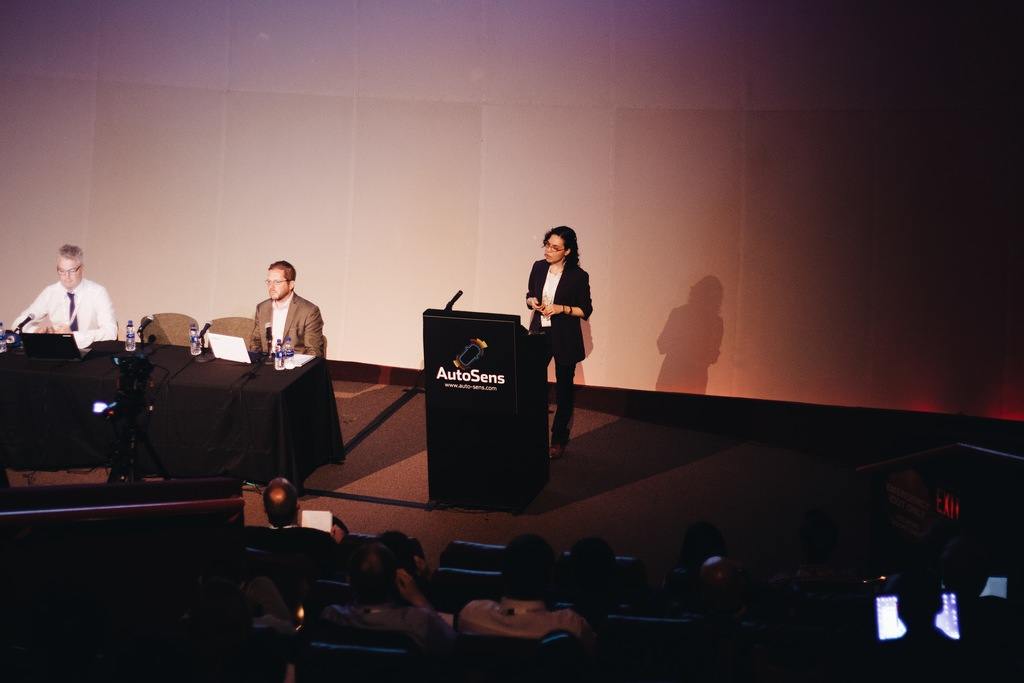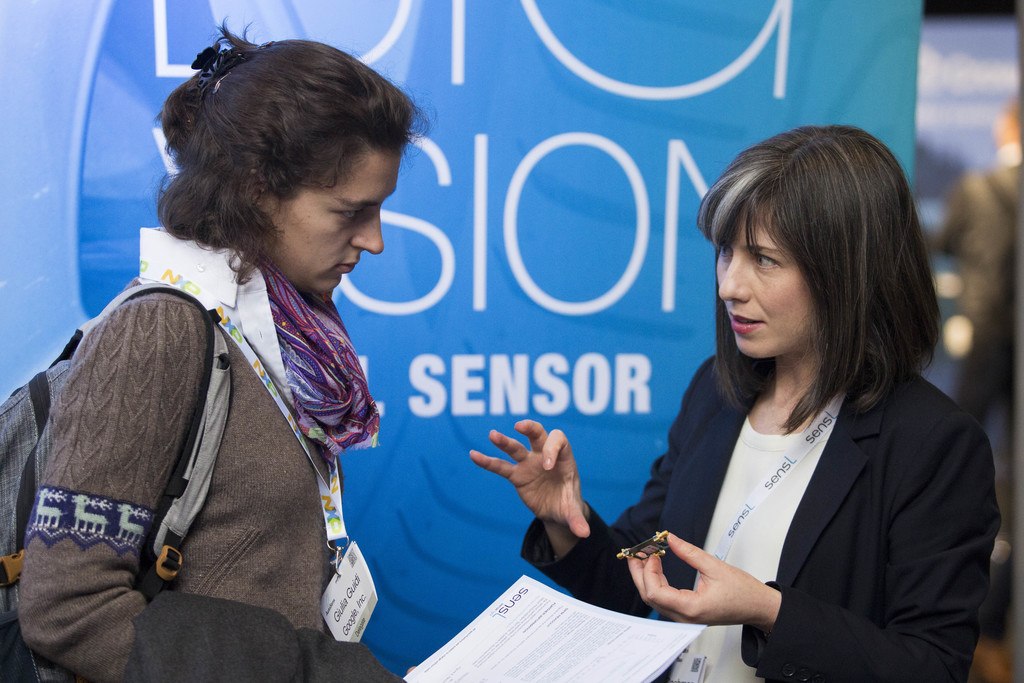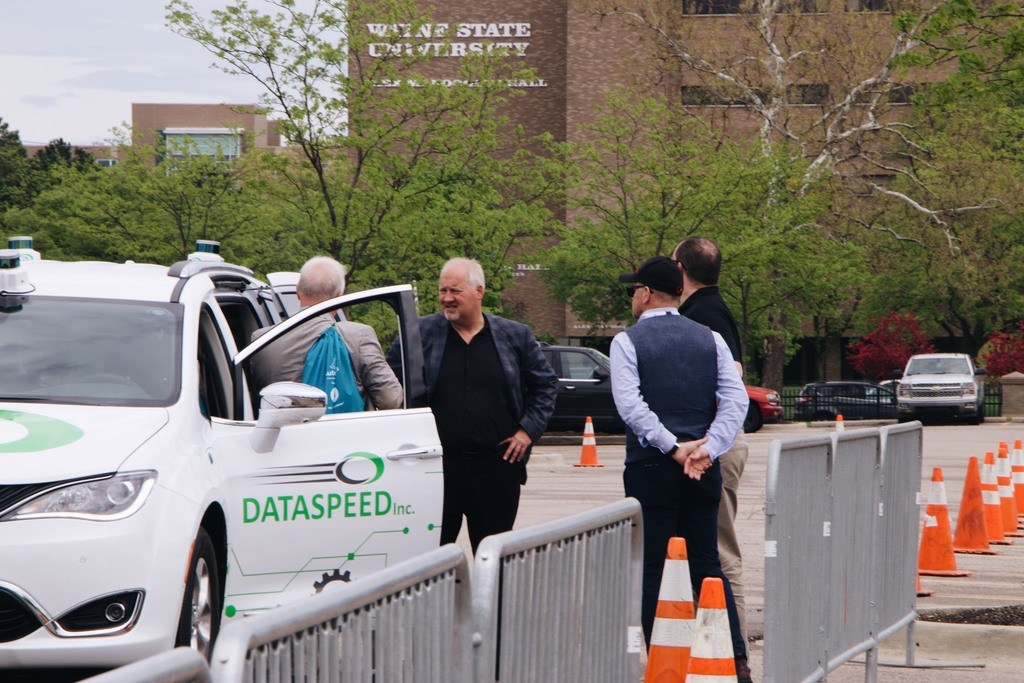- AutoSens, a leading and influential global summit on autonomous driving, is returning to Detroit.
- Technical sessions and presentations from Microsoft, Sony, General Motors, and MIT are planned.
- AutoSens takes aim at the biggest challenges facing autonomous driving by encouraging collaboration.
Not long ago, self-driving cars were figments of science fiction; the ideal centerpiece of a quasi-Utopian yet technologically-advanced society in the far away future. For over a century, we humans have piloted our own automobiles to theaters and bookstores alike to indulge our imaginations with these stories of a distant time. Yet, the reality is different. Self-driving cars? “Not in my lifetime,” one might say.
But you’d be surprised what you might see in your lifetime.
Big Dreams & Grand Visions
Autonomous cars are no longer science fiction but science fact. They are coming to our roads; it’s only a matter of time. However, the decisions we make now as an industry beforehand are vitally important. Because once they’re here, they’re here. And consumers are already skeptical of the technology. We either get it right now or we pay a substantial price in the long run. Indeed, there are many concerns, from the supply chain and infrastructure, to the legal and financial. Yet the biggest should be this: if our autonomous cars miscalculate, someone dies.
When our goals, as an industry, include zero traffic fatalities, it’s not hard to see why right now matters. And one of the best ways to achieve such a remarkable goal? By working with and learning from each other.
Content & Collaboration
These are central themes of AutoSens, and why it remains the world’s most influential summit on autonomous driving. When AutoSens returns to Detroit on May 14th, the conference will explore the biggest challenges facing autonomous cars. By combining cutting-edge academic research, industry R&D, and OEM insights, AutoSens is an invaluable resource for the engineering community.
“Engineers can ‘take the boxing gloves off’ for three days and just be engineers and scientists working on shared challenges and pursuing high-quality technical work,” said Robert Stead, Managing Director, Sense Media, the parent company of AutoSens. “We strive for high-quality technical presentations at AutoSens every year, so all attendees will go back to their office or lab with some new solutions, food for thought, or novel information.”
Organizers say returning to Detroit is essential when it comes to facilitating those types of outcomes.
“From sensors to software; systems to simulation, hardware, testing and services; there’s plenty to see over the three days,” Stead continued. “Detroit has the dual advantage of its history and future potential; recent developments combined with the scale of the existing automotive expertise in the region makes it the perfect melting pot for discussions driving the future of automotive product development.”

Robust Agenda
The Michigan Science Center will host AutoSens Detroit for the second year with another robust agenda. Highlights include the opening plenary with presentations from the U.S. Highway Loss Data Institute on the impact of current ADAS technologies on road safety. Technical workshops include a session from Osram about infra-red sensing and a hands-on demonstration from 3M regarding material-sensor interaction systems. Microsoft will host a tutorial on the Robot Operating System, while DeepScale will present energy-efficient approaches to autonomous driving.
“The technical presentations focus on these topics, but we also cover the wider issues facing development of ADAS and autonomous vehicles in the conference plenary sessions that open and close the event,” Stead said. “This might include the regulatory, financial, or legal context for the development of vehicle perception systems.”
“I would say the biggest challenge for people is trying to understand the different technologies,” explained Phil Magney, Founder and Principal Advisor, VSI Labs, during AutoSens Detroit last year. “This conference has been good for us because we meet like-minded people that are facing similar challenges; we talk, we exchange our views, and we learn from each other.”

Going Deeper
Those curious to learn more about the inner-workings of an autonomous car will be in good company. For example, the Detroit Autonomous Vehicle Group is planning a hackathon for future engineers to learn the basics of self-driving cars. As is common at AutoSens, attendees can see how an autonomous car works, piece by piece.
“By this we mean the sensors, cables, processors, other hardware and software that give a vehicle’s computer a picture of its environment so it can make decisions,” Stead explained. “These technologies are applied in many currently available road-going models, but they are also used in R&D for more advanced systems that will hit the market in the future, including fully autonomous vehicles.”
“We wanted to talk to the sensor companies because cars are getting a larger chunk of sensors now, especially for advanced driver assistance systems, autonomous applications, and for next-generation cockpits,” said Soshun Arai, Director of ADAS and Automated Driving Platform Strategy for the company. Arai and his team attended AutoSens Detroit last year to look more specifically at the individual components that affect their overall business.
“We came to AutoSens because we wanted to understand the technology and trends of sensors,” he said.

For Engineers, By Engineers
Keynote for AutoSens Detroit this year is Ed Bernardon, VP of Strategic Automotive Initiatives at Siemens. Bernardon will examine how autonomous technology will impact the future of transportation. In preparation, he and his team interviewed experts working on 3D-printed autonomous shuttles, intelligent traffic systems, and even flying cars. In addition, technical presentations from General Motors, Changan, Aptiv, Daimler, NVIDIA, Valeo, Sony, and TomTom are planned. Academic sessions include those hosted by Wayne State University, University of South Carolina, and MIT.
“AutoSens exists simply to support and help engineers and scientists, and when we hear stories from attendees about the new people they met, the things they learned, the business connections made – that’s what keeps us motivated,” Stead said. “It’s about creating a meeting place and community that can be a catalyst for others, in their pursuit of good science.”
For conference organizers, sometimes it’s about what attendees won’t experience.
“I’ve run more conferences than I can remember during my 14-year career in this sector, and sadly I’ve seen some of them suffer from an overly protective and pushy sales approach,” Stead continued. “I can understand the individual motivations for this, but it’s counterproductive at learning and networking events like this.”
“It’s a great community and we are very happy to be part of this ecosystem; it’s an excellent event,” added Paul Fleck, Founder of Dataspeed.

Tickets, Location & More Information
AutoSens Detroit 2019 begins on Tuesday, May 14th at the Michigan Science Center and runs through the 16th. Organizers say they are happy to see so many returning exhibitors alongside plenty of new brands. A demonstration event is also planned for the 14th, where attendees can take laps in vehicles equipped with autonomous technology.
Tickets, including discount packages for females in the engineering community, are available now.
“AutoSens is all about nurturing the global community of bright minds who are driving forward this revolution in automotive,” Stead said. “A truly international audience will assemble in downtown Detroit to collaborate and learn from each other’s experiences, meet new people, and catch up with old friends.”
Carl Anthony studies mechanical engineering at Wayne State University, serves on the Board of Directors for the Ally Jolie Baldwin Foundation, and is a loyal Detroit Lions fan. Before returning to school, he simultaneously held product development and experiential marketing roles in the automotive industry.




